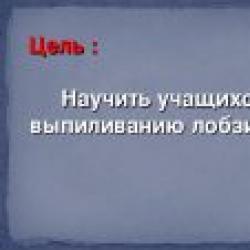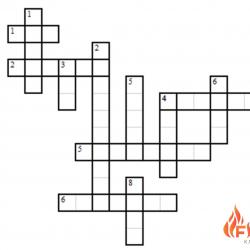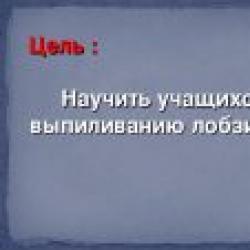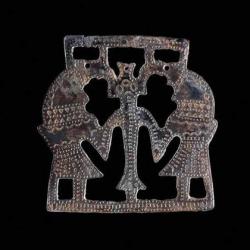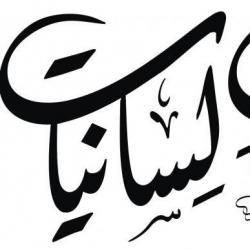A geometric term with two doubled consonants. Double consonant rule. Hyphenation of words with double consonants
All words of the Russian language consist of morphemes - significant parts of words. These include prefixes and suffixes. Roots are special morphemes that contain the semantics of a word. Endings are the formative part of the word. With the help of it, paradigms such as declension (for nouns) and conjugations (for verbs) are created.
In addition, it is thanks to inflection in the Russian language that there are such categories as gender and number.
Sometimes it happens that double consonants are formed at the junction of morphemes. For example, when the root morpheme ends with the same sound with which the suffix following it begins or the prefix ends with the same letter that begins the root. This is reflected in the letter by writing double letters, for example:
- Support, stone, domain, tell, revolt, water, etc.
Double consonants are also written in compound words if the first contraction ends with the same letter that the second begins with:
- Chief Physician, Moscow City Council, etc.
Note. In the first part of compound words, which is a stem that ends in a double consonant, only one consonant is written, for example: gra m record, gr P org, co n soldier.
In words formed from stems ending in two identical consonants, double consonants before the suffix are preserved, for example: ba ll- pyatiba ll ny, ha ll- ha ll bsky, gu nn- gu nn sky, compromise ss- compromise ss ny, gr pp a - gr pp ka, diagra mm a - diagram mm ka, program mm a - program mm ka, telegra mm a - telegram mm ka. The same is true for proper names, for example: Kanbe pp University of Ka nn Film Festival, Loza nn sky conference, more nn sk government, tulli nn ancient monuments and so on.
Exceptions. In some words, in this case, one consonant is written, for example: crista ll- krista l ny, fi nn- fi n sky, colo nn a - colo n ka, then nn a - five n ka, fi nn- fi n ka(usually double n pulls together into one n before suffix - to-a ), opera tt a - opera T ka; in the names of persons with the suffix - To , For example: A ll a - A l ka, A nn a - A n ka, Kiri ll- Kiri l ka, ri mm a - Ri m ka, sa centuries a - Ca V ka, Fili pp- Fili P ka, E mm a - E m ka.
Note. It is necessary to distinguish between the spelling of words like By d keep(console By- ) And By dd keep(console under- ). Wed: By d hold hands - by dd hold on in difficult times.
Note 2. In suffix - ess-a spelled two With (poet ss ah, steward ss uh, clown ss A), in the suffix - is-a one is written With (abbey With a, actress With ah, director With A).
In suffix - etta
spelled two T,
For example: aria tt a, opera tt ah, symphony tt A.
In a word generals ss imus spelled two With
.
Special cases of using this spelling:
a) Combinations of HH and SS.
Double "n" and "s" are written when the root ends in "n" ("s"), and the suffix begins with the same letter:
- With the suffix -n-: stone-ny (stone), long-ny (length), legal - ny (legal), den-but (day), etc .;
- With the suffix -sk -: Russian (Rus), Arzamas (Arzamas);
- With the suffix -stv-: art (but "skillful").
b) Combination of SS.
It is written in the past tense verbs, the stem of which ends in "s". When forming reflexive verbs:
- Save yourself, carry on, save on.
c) HH combination.
It is written in suffixes -enn- (-onn-) of adjectives, which are formed from nouns:
- Straw, cranberry, station, information, operational, lunch, etc.
Note 1. Exceptions: wood, tin, glass.
Note 2. The word "windy" is written with one "n", this is also an exception. However, in single-root words formed with the help of prefixes, according to the rule, a double “n” is written: “windless”, “leeward”, etc.
Double "n" is also spelled in the passive participles of the past tense, having dependent words with them:
- Presentation at the seminar.
- A memorized poem.
Double "n" is written in all adjectives that were formed from the passive participles of the past tense, if they have prefixes or end in -ovanny (-evanny):
- selected stories, redone exercises, unspoken grievances.
- a spoiled child, a spoiled child.
Note. Exceptions: forged, chewed.
Double "n" is written in the dictionary words "sacred", "desired", "unexpected", "unexpected", "unheard", "unseen", etc.
Double "n" is written in nouns with suffixes -ik, -its, -ost, as well as in adverbs on -o in cases where these parts of speech are formed from adjectives written with "nn". For example:
- inadvertently (unintentionally), excitement (agitated), pupil (educated), root (indigenous), etc.
AND
1. Double and written in the roots of words in LJ and, dro LJ And, LJ enie, zhu LJ ahh, mo LJ evelnik and cognate with them. Wed: WHO and go(cart + burn) - WHO LJ eat(cart + burn), also WHO LJ enny.
Note 1. In the presence of sound alternation zg-zzh, zd - zzh spelled not double and , A zzh , For example: in and zzh at(squeal) reception zzh at(arrival). Wed: bre zzh it, bru zzh ahh, shit zzh ahh, mo zzh echok and so on.
Note 2. In words sconces and eyka, bra and And write only one and .
rule
Doubling in Russian words
double consonants are written when combined with a prefix and a root, if the prefix ends and the root begins with the same consonant, for example: support, threshold, introduce, wipe, pour, restore, lawless, counter-revolution.
double consonants written in combination constituent parts of compound words, if one part ends and the other begins with the same consonant, for example: Moscow City Council, chief physician.
The double w is written in the words reins, yeast, juniper, buzz and in derivatives from them, as well as in some formations from the verb to burn, for example: you burn, burns, burnt, burning, burning.
Doubling in loanwords
Words of foreign origin in their languages are written according to the same principle, the doubling of consonants is most often preserved when the word passes into Russian, but we cannot explain the doubled consonant without knowing the morphemes of the language from which the word came. The spelling of such words remains to be memorized, which is what the grammar of 1956 recommends to us:
"§ 68. The spelling of double consonants in foreign words is determined in dictionary order, for example: irrigation, corrosion, cassation, kurtosis, essence, but: poster, letter, official, etching, report."
In order to learn foreign words with doubled consonants, you need to at least make a list of them. There are now more than 300 such words in the collection of our site.List of words with doubled consonants and exercises that will help you quickly learn these words are contained in the course.
Examples
A ll igator
those pp asa - a word of Greek origin: te rr a - earth.
A tt ration
O kk upant
be ss O nn itza - doubling at the junctions of the prefix, root dream and suffix.
ra ss to fall
ss ora
What to look out for
- More than two identical consonants in a row are not written, even though this was required by the composition of the word, for example: quarrel (race + quarrel), Odessa (Odessa + Sky), Prussian (Prussian + Sky), five-ton (five-ton + ny).
- In words formed from stems ending in two identical consonants, double consonants before suffixes are preserved, for example: group - group, group; program - program, software; kilowatt - kilowatt; Calcutta - Calcutta; class - cool; Hun - Hun; point (unit of measure, assessment) - five-point, Gallus - Gallic; libretto - librettist. But it is written: crystal (although crystal), Finnish, Finnish (although Finn), column (although column), five-ton (although ton), operetta (although operetta).
- Read a separate article about the choice of H and HH. Н and НН in all parts of speech.
- Sometimes foreign words, having become Russified, lose their second consonant. So the word office, which entered the Russian language along with business in the 90s of the 20th century, was first written with a double FF (as in the English word), but quickly enough people began to use it with one F. The word traffic is now written with one, then with two f.
There are no double consonants in the words:
grimace, dealer, gallery, corridor, aluminum, play, drama, dramatic, galley, furor, race, masons, operetta, literate, headmistress, tremble, quantity, caricature, crystal, column, cavalry, cymbals, emigration, wolverine, problem, producer, actress, rope, ammunition, stagecoach, sonata, stele, climbing wall, comic, rigging.
rule
Doubling in Russian words
double consonants are written when combined with a prefix and a root, if the prefix ends and the root begins with the same consonant, for example: support, threshold, introduce, wipe, pour, restore, lawless, counter-revolution.
double consonants written in combination constituent parts of compound words, if one part ends and the other begins with the same consonant, for example: Moscow City Council, chief physician.
The double w is written in the words reins, yeast, juniper, buzz and in derivatives from them, as well as in some formations from the verb to burn, for example: you burn, burns, burnt, burning, burning.
Doubling in loanwords
Words of foreign origin in their languages are written according to the same principle, the doubling of consonants is most often preserved when the word passes into Russian, but we cannot explain the doubled consonant without knowing the morphemes of the language from which the word came. The spelling of such words remains to be memorized, which is what the grammar of 1956 recommends to us:
"§ 68. The spelling of double consonants in foreign words is determined in dictionary order, for example: irrigation, corrosion, cassation, kurtosis, essence, but: poster, letter, official, etching, report."
In order to learn foreign words with doubled consonants, you need to at least make a list of them. There are now more than 300 such words in the collection of our site.List of words with doubled consonants and exercises that will help you quickly learn these words are contained in the course.
Examples
A ll igator
those pp asa - a word of Greek origin: te rr a - earth.
A tt ration
O kk upant
be ss O nn itza - doubling at the junctions of the prefix, root dream and suffix.
ra ss to fall
ss ora
What to look out for
- More than two identical consonants in a row are not written, even though this was required by the composition of the word, for example: quarrel (race + quarrel), Odessa (Odessa + Sky), Prussian (Prussian + Sky), five-ton (five-ton + ny).
- In words formed from stems ending in two identical consonants, double consonants before suffixes are preserved, for example: group - group, group; program - program, software; kilowatt - kilowatt; Calcutta - Calcutta; class - cool; Hun - Hun; point (unit of measure, assessment) - five-point, Gallus - Gallic; libretto - librettist. But it is written: crystal (although crystal), Finnish, Finnish (although Finn), column (although column), five-ton (although ton), operetta (although operetta).
- Read a separate article about the choice of H and HH. Н and НН in all parts of speech.
- Sometimes foreign words, having become Russified, lose their second consonant. So the word office, which entered the Russian language along with business in the 90s of the 20th century, was first written with a double FF (as in the English word), but quickly enough people began to use it with one F. The word traffic is now written with one, then with two f.
There are no double consonants in the words:
grimace, dealer, gallery, corridor, aluminum, play, drama, dramatic, galley, furor, race, masons, operetta, literate, headmistress, tremble, quantity, caricature, crystal, column, cavalry, cymbals, emigration, wolverine, problem, producer, actress, rope, ammunition, stagecoach, sonata, stele, climbing wall, comic, rigging.
It came unexpectedly, silver streams ran along the loose paths. Winged wanderers have returned from distant lands, these feathered workers build their nests tirelessly.
The spring picture conveyed by this text makes us remember the rules for writing doubled consonants.
in loanwords
If the spelling of double consonants in a word cannot be checked in any way, then they are called double. These words are to be remembered. As required by this rule, we memorize the words with doubled consonants below.
1. Some Alla, Anna, Vassa, Inessa, Ella, Rimma, Cyril, Savva.
2. terrace, ton, effect, tennis, repression, program, column, correspondent, assembly, alley, ball, etc.
3. Some native Russian words: Russia, burns, buzzes, yeast, quarrel.
4. In all words that are cognate with the above.

Differences of words with different number of consonants
When there is one consonant in some words, and double consonants in others, the rules are as follows:
1. If it differs in the number of consonants, then these are most likely different words with different lexical meanings:
- ton - a measure of weight, tone - the case form of the word tone - a shade of sound or color;
- cash desk - a device for storing money, touch - connection at some point;
- point - a unit of assessment, ball - an evening of relaxation with dancing.
Suggestion examples:
- A ton of coal has already been loaded onto the ship.
- Igor had never heard such a pure tone.
- The box office is closed today.
- The touch was weak.
- I got a high score in the exam.
- Natalia was invited to the ball.
2. There are cases when the number of identical letters does not affect the lexical meaning of words: Alla - Alka, crystal - crystal, art - skillful, correspondent - junkor, column - column, Finn - Finnish, ton - five tons.

No double consonants
If we take, for example, the word "aluminum", then it has one letter "l". Remember words that don't have double consonants. Word examples:
- apartments;
- balustrade;
- gallery;
- humanist, humanistic;
- decibel;
- dealer, dealer;
- dilettante, dilettante;
- drama, dramatic, dramatic;
- imitation, imitate;
- corridor, corridor;
- midget;
- producer, producer.
with double consonants
Usually words are carried by syllables: ma-shi-na. doubled consonants are:
- Part of the word with one consonant remains on one line, and part of the word with the second consonant is transferred to another: column-na, ton-na, Al-la, Russia.
- The transfer of words with doubled consonants should be carried out, if possible, in a place where there is no doubled consonant: art, terrace, correspondent.

Unfortunately, even adults are sometimes mistaken, well, or they don’t know how to properly transfer such words. So that embarrassment does not happen to you, let's discuss in which cases the transfer of words with double consonants is unacceptable. Examples:
- all-her;
- terrace;
- art.
In addition, the rules for transferring double consonants prohibit transferring words with one vowel sound: class, score, burns.
At the junction of morphemes
When the end of a prefix and the beginning of a root, the end of a root and the beginning of a suffix, or the suffix are the same letter, doubled consonants appear. The rules dictate this:
- permanent;
- fearless;
- selfless;
- toothless;
- lawless;
- provoke;
- open;
- story;
- get angry;
- to pick;
- dissect;
- dry up;
- be pinched with cold;
- vestibule;
- give in;
- pry;
- thaw;
- outflow;
- beat;
- enter,
- up;
- entrusted;
- art;
- Russian;
- sailor;
- Novocherkassk;
- picture;
- old;
- true;
- cardboard;
- coaster;
- windowsill;
- supporter;
- wanderer;
- chosen one;
- pickpocket;
- raspberry;
- aspen.
Doubled consonants appear when adding abbreviated stems:
- head physician;
- maternity hospital.

In adjective suffixes
In Russian, one of the most complex orthograms is one and two letters H in suffixes that are found in words of different parts of speech. Consider spelling -n- And -nn- in adjectives. A table will help us with this.
There are several exceptions to this rule: windy (windless), glass, tin, wood.
It is especially worth mentioning the words that are formed without a suffix:
- pork;
- mutton;
- young;
- scarlet;
- blue;
- green.
In participle suffixes
In order to apply the rule correctly, words with double consonants-participles must be distinguished from adjectives. They are formed from verbs:
- proceed - well-groomed;
- paint - painted;
- write - written;
- expel - exiled;
- wish - desired;
- buy - bought;
- eradicate - eradicated;
- elect - elected;
- red-hot - red-hot;
- fry - fried;
- wake up - awakened;
- delimit - delimited;
- print - printed;
- draw - drawn;
- interrogate - interrogated;
- seize - seized.
Spelling of double consonants. Rule for participles with one letter H |
|
In short participles | All tasks completed. |
In imperfect participles without dependent words and prefixes | The bench is painted. |
Spelling double consonants with two letters H |
|
There are prefixes | Arranged tables. |
There are dependent words | A bench painted yesterday. |
Words to remember: unseen, unexpected, unexpected, unexpected, unread.
In adverb suffixes
In adverbs, the same amount is written H, how many in the generating word. This is the simplest rule. Words with double consonants with this spelling exist in Russian along with those that are written with one letter:
- sincere - sincerely;
- unintentional - inadvertently;
- beautiful - beautiful;
- interesting - interesting.

Test
Now that the topic "Double consonants" has been studied, the rules are familiar and understandable, you can check how high the level of assimilation of the educational material is.
A. Ball. B. Group. B. Class. G. Alley. D. Gallery.
A. You need to leave both letters on the line.
B. Both letters must be transferred to the next line.
A. Definitely need to check.
B. No, you need to remember.
A. Saturday. B. Telegram. B. Story. G. Hockey.
5. In what word are LJs written? Write it _____________________
- bry ... chewing liquid;
- zadrebe ... scarlet iron;
- drive through the bridge;
- annoying and ... burning;
- ra ... reap a trap;
- ra .. complain to mom;
- ye...wife earth;
- bred ... a horse;
- see... a squeezing child.
beech a (l / ll) her, television (n / nn) ante (n / nn) a, dra (m / mm) atic co (l / ll) izia, friendly team (l / ll) ective, interesting pie (s/ss)a, capture(n/nn)te(r/rr)itoria, (s/ss)fight with friends, old dro(f/lj)i, show gu(m/mm)anism, krista (l / ll) honesty, file a (p / pp) e (l / ll) ation, a (l / ll) yuminium alloy, inventive claim (s / ss) art, a (k / kk) decompose urately, intelligently talk, go to the opera (t / tt) y, ma (s / ss) onskaya box, I’m fond of be (l / ll) etristy, a (n / pp) etitny pie, art (n / nn) th ha (l / ll) here.
Tasks in the GIA format
- The snow has already melted.
- The shores of ... are heated in the spring.
- The sun mercilessly eats away the snow drifts.
- Rays be… pitifully burn the yellowed fields.
- Streams and .. dried up.
- Travelers wandered along the road along ... holding each other.
- Everyone sat down around the fire.
- It is a pleasure to walk with a full bucket along a barely visible path to the hut.
- He liked everything here and delighted him: how large drops splashed, falling from the leaves of trees, how peaceful ... about the fire crackled and the forest land smelled breathtakingly.
- Grandmother collected herbs: St. John's wort, plantain, fern, and always told me about their healing mysteries ... properties.
- His tanned face was furrowed...with deep wrinkles.
- The owner spoke unusually ... oh tenderly, talking to the pigeons.
- We approach the house and see that the gate is open: it is clapping from the wind, and the heck is torn off ... but.
- The next day, the gate was more beautiful ... ah, its hinges are greased ... s.
- In the square at the very entrance of the tree ... there is a bench.
- Near the bench were new poles vkopa..y.
- Waves lazily crawled onto the sand and slowly crawled away, leaving behind an edge of snow-white foam.
- The dog stood and looked into the distance of the sea, numb, with a lowered ... tail.
- Grandmother was sitting at the table, silent and slowly ... about chewing bread.
- The dog was huge, with a big head and lion paws.
- He was wearing faded, impossibly wide canvas pants.
- Posters were pasted all over the city.
- Everyone left, and only the sleek faces of the lackeys flickered in the corridors.
- In the center of the room stood a table covered with a woven gold tablecloth.
3. Select the sentences in which the numbers are correctly indicated, in the place of which HH are omitted.
- On the table there are (1) a lot of vases with flowers and a throw (2) and a bunch of branches, so that the dishes stand, as if in a sacrament (3) more often. (3)
- At the end of the nineteenth century, the variable filling thermometer was invented. Behind such a wise (2) name was a device intended (3) for measuring temperature in a small interval. (13)
- On a hot day, I sat by a tree (1) pier and ate ice cream (2) with crushed (3) nuts. (1)
- On the table are (1) s peaches, prepared (2) for compote, not yet cleaner .. s. (2)
- The glazed (1) doors were loose (2), and their standing (3) ringing merged with the ringing of the chandelier. (13)
- At the end of the long (1) corridor there was a fence (2) and a closet that served as a guest (3). (1)

Answers
1. Which word is spelled wrong?
D. Gallery.
2. What is the answer to the question: “How to transfer a word?” will be true?
B. Leave one letter on the line, and transfer the other.
3. Answer: is it possible to check double consonants?
B. No, you need to remember.
4. In which word is not a double, but a doubled consonant?
B. Story.
5. In what word are LJs written? Write it: scorched.
6. One or two letters are missing in brackets:
Beech alley, television antenna, dramatic conflict, art gallery, friendly team, interesting play, occupied territory, quarrel with friends, old yeast, show humanism, crystal honesty, file an appeal, aluminum alloy, inventive art, neatly decompose, intelligently talk, go to the operetta, the Masonic lodge, I am fond of fiction, an appetizing pie.
Tasks in the GIA format
1. What sentences contain words that are written with double consonants?
- The streams have dried up.
- The travelers walked along the road, supporting each other.
- Everyone sat around the fire.
2. Which sentences contain words with two letters H?
- It is a pleasure to walk with a filled bucket along a barely visible path to the hut.
- He liked everything here and delighted him: how large drops flopped, falling from the leaves of trees, how peacefully the fire crackled and the forest land smelled breathtakingly.
- Grandmother collected herbs: St. John's wort, plantain, fern, and always told me about their healing mysterious properties.
- The owner spoke with unusual tenderness when talking to the pigeons.
- There is a wooden bench in the square near the entrance.
- Waves lazily crawled onto the sand and slowly crawled away, leaving behind an edge of snow-white foam.
- The dog stood and looked into the distance of the sea, numb, with its tail lowered.
- Grandmother sat at the table, was silent and slowly chewed bread.
For the third task, the answers are given in the text itself, in brackets.
Double consonants at the junction of significant parts of the word
In three adjectives - wooden, pewter and glassy - the suffix -yann- stands out, which is written with a double n.
With one n, the adjective suffix -in (yy), for example: nightingale, chicken, mouse, living room (gostiny dvor); the same in nouns living room, hotel(but compare the adjective living room, see § 95).
Note. The spelling of the following adjectives is determined in dictionary order: with one n are written smart, wise; with twon -exhausted, exhausted, pompous, slow, desperate.
In nouns with the suffix -ennik, a double n is written, for example: traveler (from travel), predecessor
(precede), relative (property), compatriot (fatherland), like-minded person (thought, think), malefactor, accomplice (intent), drowned (drown), protege (set), number (number), noodles (noodles).
However, one n is written in the words student (from learn (sya), worker (work), martyr, unmercenary, silver(name of the coin), dumpling.
Note. For double consonants in borrowed (foreign) noun suffixes, see § 108.
Double n and one n in the suffixes of passive past participles and adjectives correlative with them
Full Forms
Note. Such adjectives are few; the vast majority of correlative adjectives with participles in -ny have no qualitative value; these are boiled, boiled, soaked, dried, chiseled and so on.
Double n and one n in words formed from adjectives and participles
A hyphen (also called a dash) is a non-alphabetic spelling mark that is used in various functions. It is used in the rules for continuous, hyphenated and separated writing (see § 117-156), as a hyphen (see

